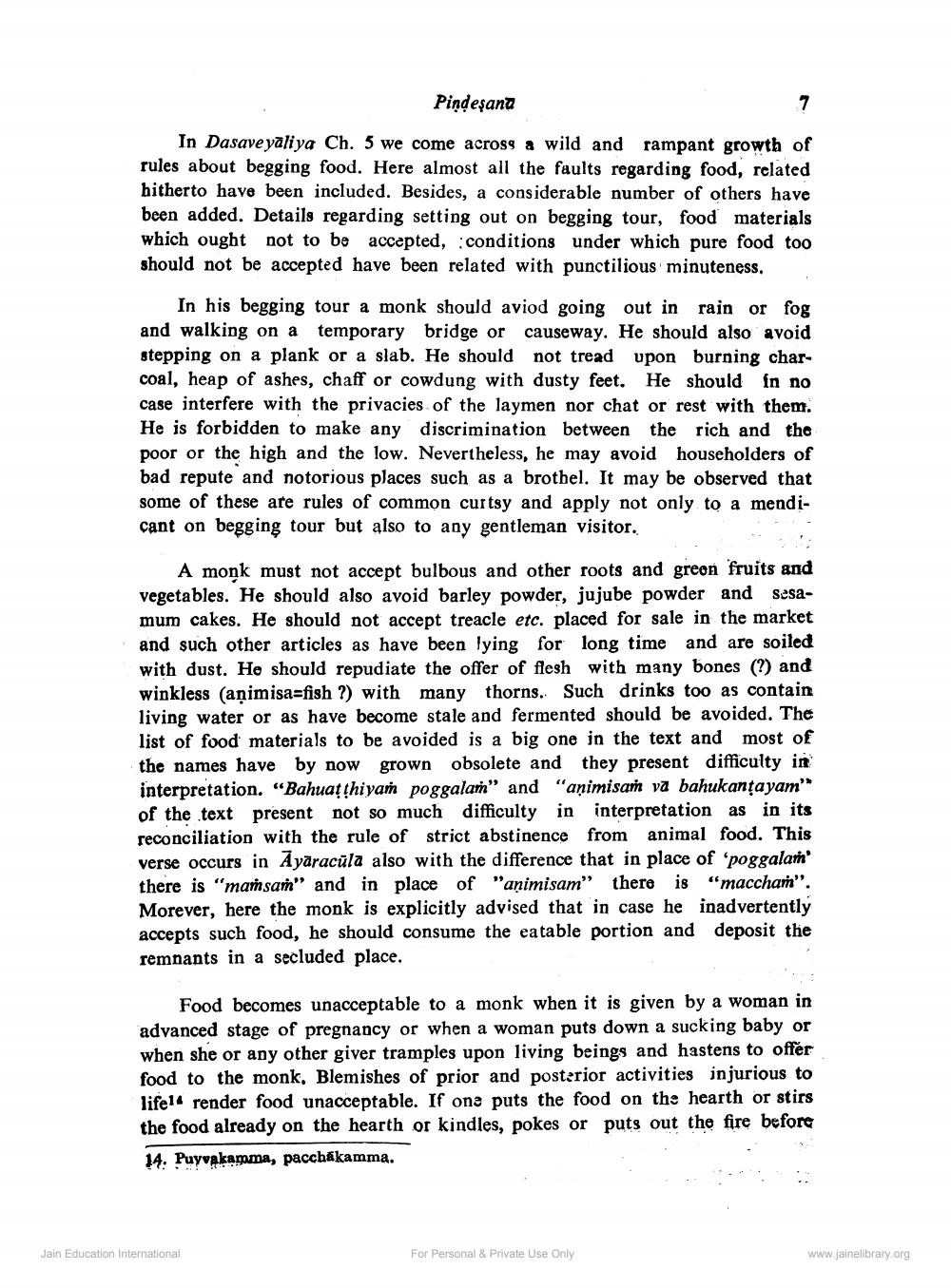________________
Pindeşana
In Dasave yaliya Ch. 5 we come across a wild and rampant growth of rules about begging food. Here almost all the faults regarding food, related hitherto have been included. Besides, a considerable number of others have been added. Details regarding setting out on begging tour, food materials which ought not to be accepted, conditions under which pure food too should not be accepted have been related with punctilious minuteness.
In his begging tour a monk should aviod going out in rain or fog and walking on a temporary bridge or causeway. He should also avoid stepping on a plank or a slab. He should not tread upon burning charcoal, heap of ashes, chaff or cowdung with dusty feet. He should in no case interfere with the privacies of the laymen nor chat or rest with them. He is forbidden to make any discrimination between the rich and the poor or the high and the low. Nevertheless, he may avoid householders of bad repute and notorious places such as a brothel. It may be observed that some of these are rules of common curtsy and apply not only to a mendicant on begging tour but also to any gentleman visitor.
A monk must not accept bulbous and other roots and green fruits and vegetables. He should also avoid barley powder, jujube powder and sesamum cakes. He should not accept treacle etc. placed for sale in the market and such other articles as have been lying for long time and are soiled with dust. He should repudiate the offer of flesh with many bones (?) and winkless (aņimisa-fish ?) with many thorns. Such drinks too as contain living water or as have become stale and fermented should be avoided. The list of food materials to be avoided is a big one in the text and most of the names have by now grown obsolete and they present difficulty in interpretation. “Bahuatthiyam poggalam" and "animisam va bahukanțayam" of the text present not so much difficulty in interpretation as in its reconciliation with the rule of strict abstinence from animal food. This verse occurs in Ayāracüla also with the difference that in place of 'poggalan there is "mamsan" and in place of "animisam" there is "maccham". Morever, here the monk is explicitly advised that in case he inadvertently accepts such food, he should consume the eatable portion and deposit the remnants in a secluded place.
Food becomes unacceptable to a monk when it is given by a woman in advanced stage of pregnancy or when a woman puts down a sucking baby or when she or any other giver tramples upon living beings and hastens to offer food to the monk, Blemishes of prior and posterior activities injurious to life11 render food unacceptable. If one puts the food on the hearth or stirs the food already on the hearth or kindles, pokes or puts out the fire before 14: Puyvakamma, pacchakamma.
Jain Education International
For Personal & Private Use Only
www.jainelibrary.org




